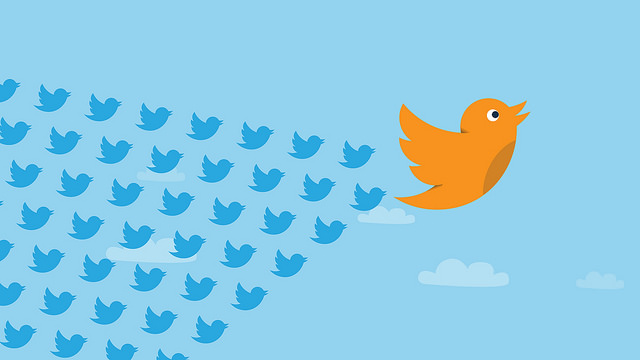Like this article? rabble is reader-supported journalism. Chip in to keep stories like these coming.
I’ve just submitted a draft of a feature for Briarpatch magazine‘s May issue. The piece tackles white supremacy in the feminist movement and argues that white feminists are not doing enough to confront how white supremacy operates. Here’s hoping we make it to May before catastrophic climate change kills us all, so you can read it.
During the process of writing the piece, I talked to admirable and fierce women who are engaging in activism in many different ways: in the streets, in the home, within the labour movement and online. Two people I interviewed spoke specifically to the importance of social media as a site of their activism.
Everyone talked about the importance of building community, a truly safer space where difficult conversations about white supremacy and white privilege could be had. Despite my individual conversations with people, everyone said the same thing: we cannot confront the systems that oppress and subjugate if we don’t first do the difficult work of building relationships.
It’s an obvious observation, but can be difficult to put into practice. Neoliberalism has convinced an entire generation of people that community is overrated, and at best, elusive. In an era where most of our political interactions very well may occur online, how can we build real relationships when our interactions are more superficial than ever before?
This is a critical question for progressives to grapple with. In absence of broad consensus of what being a progressive even means, our social media interactions can either become a site of interesting, thoughtful debate, or destructive poo-flinging-esque typing.
While I try to reserve my most vicious of poo-flinging social media posts for debates with actual right-wingers, I’m definitely guilty of being less-than-constructive when engaging with other progressives. But when self-identified progressives engage in this kind of debate, it makes an already toxic space even more toxic, and helps fuel distrust and disengagement.
Societal oppressions don’t melt away when we enter online spaces, and I think people with the array of privileges society recognizes often forget that. When engaging with someone online, someone who’s supposed to be on your team, there is a very important fact that we need to remember:
We are mostly all anonymous to each other.
If we’re anonymous to each other, we cannot arrive at meaningful consensus. We cannot build movements. If we debate each other ad nauseam and we don’t actually work to cut across the technology to build a relationship, we’re wasting our time.
If social media is used as a tool to build social movements, it cannot be a space that is toxic. And yet, it’s often more toxic than IRL organizing spaces. Comments one might expect to read in a subtweet would likely never come out of someone’s mouth during an organizing meeting.
Progressives who use social media to build social movements have to tweet, post, debate and type with care. When you throw your words into the void with the intention of engaging with someone, if you’re not adding substantively to the discussion, you need to seriously question whether or not you should be engaging.
There is a serious lack of debate on the Left. Arguments that pass for debates are usually contrived, personal and substance-less. To fight the inertia towards online slacktivism and snarkuments, progressives need to take their online activities seriously, engage in good faith and be as generous as possible when working through a discussion.
Otherwise, we’ll never be able to turn our online interactions into something that could meaningfully build a real-life social or political movement. Which is fine, if you only use Facebook is to update your extended family about the lengthening of your spawn. But if you’re among the lot of progressive activists who seriously believe that social media should be a site for social change, we have a lot to do to detoxify our interactions with each other.
Like this article? rabble is reader-supported journalism. Chip in to keep stories like these coming.
Image: Flickr/Alan O’Rourke



